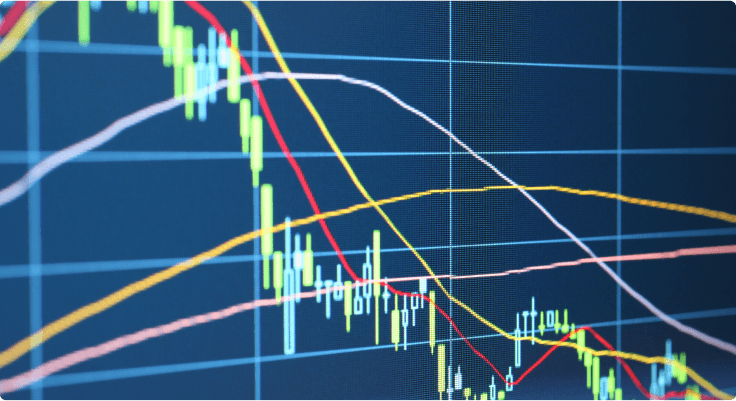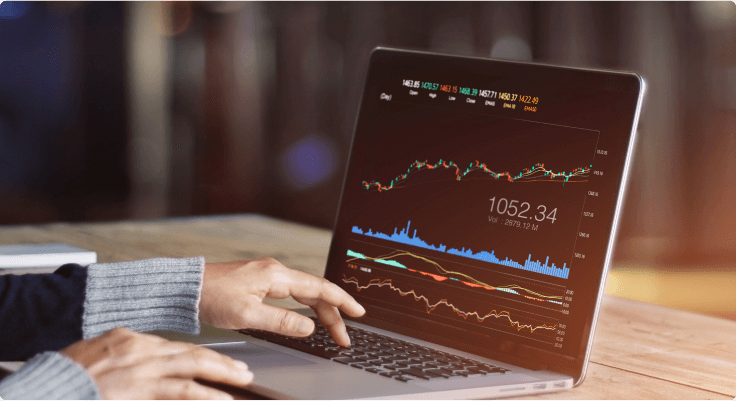What are ETFs?
Exchange-traded funds (ETFs) are a type of pooled investment where investors’ monies are pooled together to purchase and hold multiple underlying assets. ETFs are most often invested to match a particular index (passively managed). They are traded like a stock and are typically accompanied with low ongoing fees. Special redemption provisions for ETFs are designed to keep their market prices very close to their NAVs.
Here are 6 popular ETFs right now:
🟢 VanEck Semiconductor ETF (Nasdaq: SMH)
This ETF seeks to replicate the MVIS US Listed Semiconductor 25 Index, which tracks the largest companies involved in semiconductor production and equipment. The fund has a 5-star Morningstar rating.
The Expense Ratio is 0.35%. Some of its largest holdings include Nvidia, Taiwan Semiconductor Manufacturing, Intel, ASML and Broadcom. The fund is ideal for investors looking to gain exposure to the recent AI frenzy, while avoiding the time-consuming task of single stock picking.
🟢 iShares 20+ Year Treasury Bond ETF (NASDAQ: TLT)
TLT tracks the ICE US Treasury 20+ Year Bond Index, giving investors exposure to long-term US Treasury bonds with maturities over 20 years. Bond prices and interest rates move inversely to each other.
The Expense ratio is 0.15%. The 12-Month Yield is 3.66%. With the Fed still expected to slash interest rates this year, lower rates should benefit longer-maturity bonds the most as they have the greatest sensitivity (duration) to interest rate fluctuations.
🟢 iShares MSCI Emerging Markets ex China ETF (AMEX: EMXC)
This ETF aims to track the MSCI Emerging Markets ex China Index, providing investors with exposure to companies from emerging market countries excluding China. This includes countries like India, Taiwan, S.Korea, Brazil, and even Saudi Arabia. If US rate cuts materialize, EM assets could benefit from a weaker USD and a diversification away from expensive US equities.
The Expense Ratio is 0.25%. Top holdings include Taiwan Semiconductor Manufacturing, Samsung Electronics, India’s Reliance Industries, and SK Hynix.
🟢 CSOP Huatai-Pinebridge SSE Dividend Index ETF (SGX: SHD)
SHD tracks the SSE Dividend Index, giving investors exposure to 50 dividend-paying Chinese companies. Chinese dividend stocks have been a bright spot this year, with SHD outperforming the CSI 300 Index and even the Nasdaq in terms of total return.
The Management Fee is currently 0.89%. Dividend stocks are expected to remain resilient, as they help provide a cushion against market downturns and volatility. Recent regulatory initiatives have also been instrumental in encouraging more companies to boost the frequency and amount of their dividend payouts, with the CSRC issuing a “cash dividend guidance for publicly listed firms” in late 2023.
🟢 iShares Core S&P 500 ETF (AMEX: IVV)
IVV tracks the S&P 500 by investing in all 500 stocks that comprise the index. The fund allows investors to gain exposure to US large caps with just 1 transaction. It is perhaps the ideal ETF for beginners as it is a simple fund that removes the need for stock picking.
The Expense Ratio is 0.03%. Top holdings include Microsoft, Apple, Nvidia, Amazon, and Meta.
🟢 Vanguard FTSE Developed Markets ETF (AMEX: VEA)
VEA tracks the FTSE Developed All Cap ex US Index, giving investors exposure to international stocks outside the US. This includes companies in Japan (22% by geographical breakdown), UK (11%), Canada (9%), France (9%), Switzerland (8%) & Germany (7%).
The Total Expense Ratio is 0.05%. Top holdings include Novo Nordisk, ASML, Nestle SA, Samsung Electronics, Toyota Motors, and LVMH.
VEA is also less tech-heavy than traditional US ETFs, with Financials (19%) comprising the largest sector. Thus, VEA typically pays more dividends, demonstrated by a 12Mth Yield of 3.19% vs the S&P 500 at 1.61%













